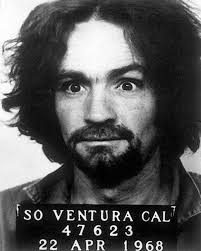
The Importance of Charles Manson’s Legacy
Charles Manson remains one of the most infamous figures in American criminal history. His name evokes a chilling connotation, serving as a stark reminder of the dark side of the 1960s counterculture and its descending into violence. Manson’s orchestrated murder spree committed by his followers, known as the Manson Family, marked a turning point in how society viewed the quest for peace and love during that tumultuous era. As we reflect on contemporary issues of violence and the glorification of criminality, Manson’s life and influence remain relevant.
The Crimes and Conviction
Manson rose to notoriety after the brutal murders of actress Sharon Tate and several others in August 1969. Despite not committing the murders himself, Manson was convicted of first-degree murder and conspiracy to commit murder for directing his followers to carry out the killings. The trials and subsequent media attention painted a vivid picture of a man who exerted psychological control over his followers, stemming from a profound belief in an impending apocalyptic race war—a theory he dubbed “Helter Skelter.” His charisma manipulated vulnerable individuals to commit heinous acts under the guise of loyalty and ideology.
Current Reflections on Manson’s Legacy
Even years after his death in 2017, Charles Manson continues to capture the interest of scholars, filmmakers, and the general public. Recent documentaries and books have revisited the horrifying events of his life, with a renewed focus on the psychological aspects of cult dynamics and the societal conditions that allowed such a figure to thrive. As America grapples with issues of extremism in various forms today, Manson’s story serves as a critical case study. It raises questions about how easily vulnerable populations can be manipulated and the responsibility of society to recognize early warning signs of cult behavior.
Conclusion: The Significance of Understanding Manson’s Impact
The legacy of Charles Manson is not solely characterized by his crimes but by the sociocultural phenomena they represent. Understanding his impact invites a broader discussion on issues relating to celebrity culture, media sensationalism, and the dynamics of influence. As narratives surrounding Manson continue to evolve, they challenge readers to contemplate the fine line between fascination and horror in our cultural memory, ensuring that the lessons of the past not be forgotten. In examining Manson’s legacy, we uncover deeper truths about human behavior and the complex, often dark, history of societal movements.



